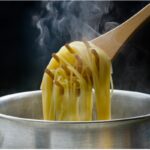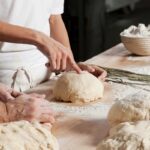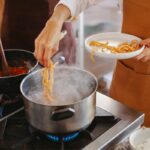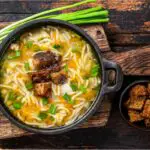From head chefs to students, no one can resist the delicious flavors that pasta provides. Spaghetti, carbonara, mac and cheese, Italy really did bless us with some of the best food in the world.
Although, you would be surprised by how many people don’t know how to cook their pasta properly. Whether you like yours to fall apart on your fork or enjoy it a little more al dente, there may be one crucial step we are forgetting.
Below you will find the answer to whether you should rinse your pasta after cooking. There are clear instructions for making the perfect pasta and you will find everything you need below.
To Rinse Or Not To Rinse
For years, professionals and home cooks have debated over whether you should rinse your pasta after cooking. And while many say that you shouldn’t, there are some who are all for it.
Pasta is a starch and when it boils in water, some of the starch is released into the water and leaves a coating on the pasta. This is the main reason many people will vote for rinsing pasta once it is cooked.
Another is that giving it a rinse with cold water will stop the cooking process. This prevents the pasta from becoming mushy and falling apart when you add your sauce or as you pick it up with your fork.
However, there are plenty of reasons why you should not rinse your pasta.
Why You Shouldn’t Rinse Your Pasta
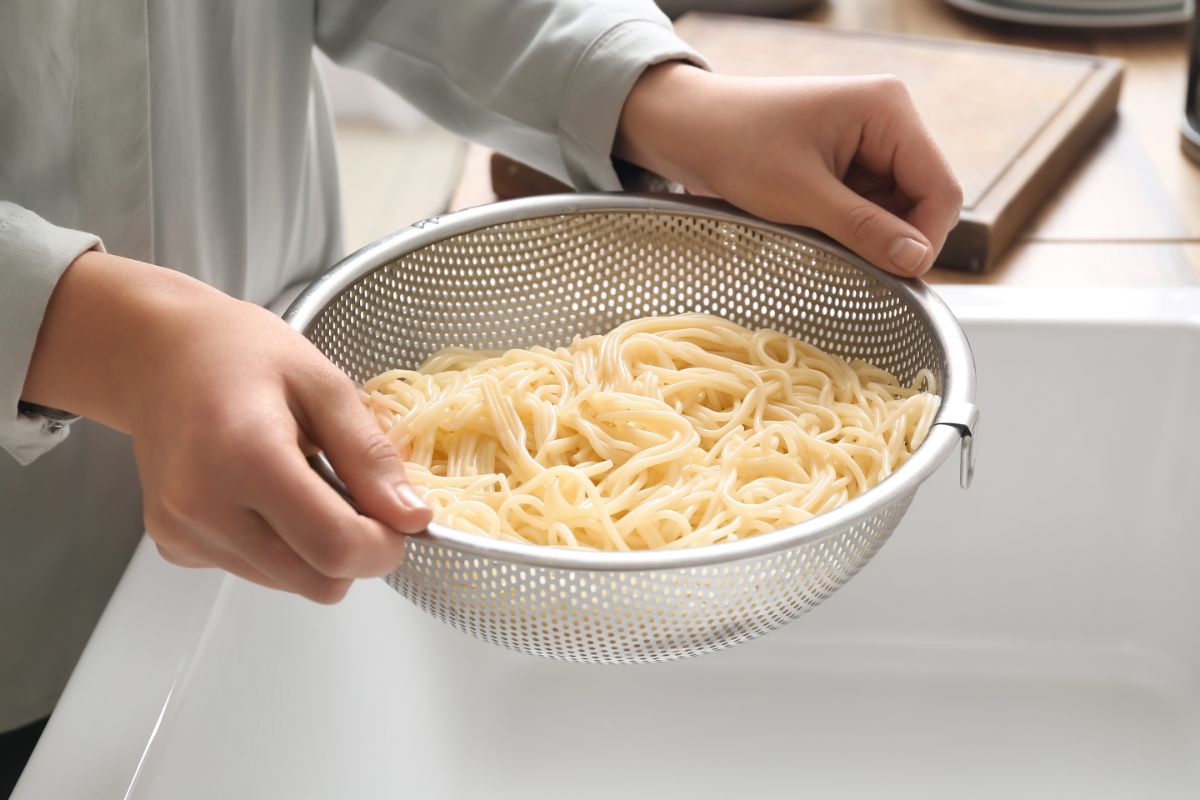
So, as you saw above, when you cook pasta some starch is released into the water and coats the pasta.
Now, many people do not enjoy that starchy coating on their pasta but have you ever tasted it at a restaurant? No.
This is because that starch is what helps bring the pasta sauce together. Most pasta recipes will call for some of the pasta water to be used in the sauce. This is what it is rich and brings everything together.
That starch helps the sauce bind to the pasta and ensures you get all that saucy goodness with every bite. Without it, you might end up with sad, sauceless pasta. And nobody wants that.
You also want to serve hot pasta which can be ruined if you rinse cooked pasta with cold water. Talk about ruining your final dish.
When Should You Rinse Your Pasta?
When cooking pasta, there are only a few instances where you should wash your pasta.
1. Pasta Salad
Always drain pasta after cooking if it will be used in a cold salad. This does two things:
It quickly halts the cooking process, first. When eating hot pasta, you don’t want it to cool down during the rinsing process, but since the spaghetti will be served chilled in this case, it’s okay. You never want pasta salad to be served warm.
Secondly, it helps keep the pasta loose. Perfect for tossing into a salad. If you did not rinse your pasta noodles, it would become gummy and clump together when you add your dressing and begin tossing.
2. Stir-Fry
No matter if you are using spaghetti or a type of Asian noodles, you must always rinse your noodles before stirring them into your stir fry.
If the noodles weren’t stir-fried, the starchy coating on them would cause them to get sticky and cluster together. The noodles do chill after rinsing, but this is okay because they will be cooked again in a hot pan.
Can You Rinse Pasta With Boiling Water?
Rinsing your cooked pasta with boiling water is rather unnecessary. It will simply rinse off the starchy goodness that binds the sauce to your pasta and will do nothing to stop the cooking process.
Ultimately leaving you with bland, slippery, mushy pasta. If you do need to rinse your pasta make sure to always use cold water to get the best result.
How To Cook Pasta To Perfection
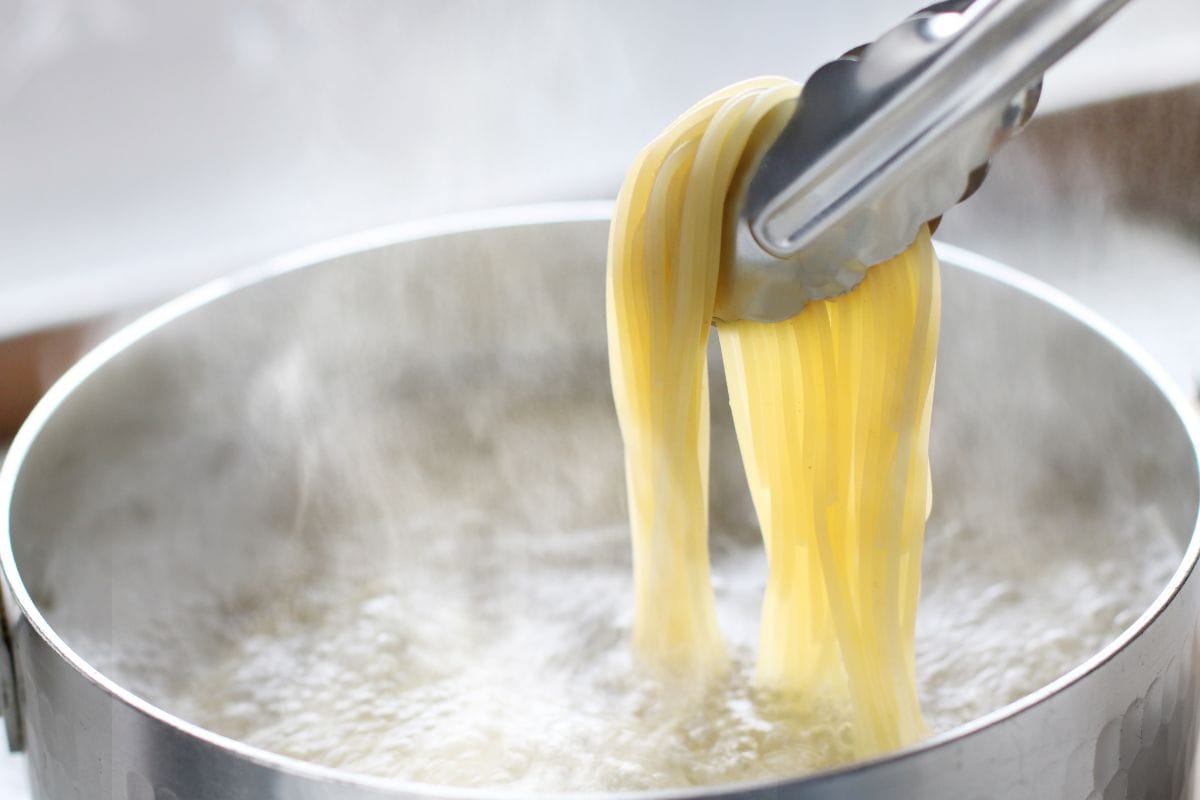
You may be thinking everyone knows how to cook pasta but there are very few who get it right every time. Now, I’m not claiming to be the world’s greatest chef but my pasta is rather good if I do say so myself.
1. Bring a pot of water to the boil. Not a simmer, a rolling boil.
2. Add a tablespoon of salt. Don’t be shy!
3. Add your pasta to the boiling water.
4. Stir your pasta within the first 2 minutes of cooking to prevent it from sticking.
5. 2-3 minutes before the recommended cooking time, taste your pasta for an al dente texture. With a fleck of white in the middle, this texture might be characterized as soft with a hard bite.
6. Once your pasta is cooked, drain the pasta into a colander, keeping a cup of the cooking water for your pasta sauce.
And there you have it! Gorgeous, al dente pasta that is ready for any recipe you require.
Can You Add Oil To Your Pasta?
Another debate within the world of pasta is whether you should add a dash of oil when cooking your pasta.
A common trick is adding oil to your spaghetti noodles in order to prevent them from clumping together. However, you may be doing more harm than good to your pasta.
When you drain the noodles from the water, a layer of oil will have formed on top of the pasta water, coating all of the noodles as they are removed from the water.
This then cancels out that glorious starchy film that helps the sauce cling to the pasta. When you plate your pasta up, the oil is going to cause your sauce to slip to the bottom of the plate.
Less than ideal.
Final Thoughts
So, should you rinse your pasta after cooking? Unless you are making a cold dish, no you should not rinse your pasta after cooking.
That film of starch that is left on the pasta after cooking is essential in adding flavor to your dish and making sure everything comes together. Without it you will be eating sad, sauceless pasta.
The only time you should rinse your pasta is when making a pasta salad or stir fry when you want to stop the cooking process and keep your noodles loose.
Now, get the water boiling and serve up some beautifully cooked pasta!

